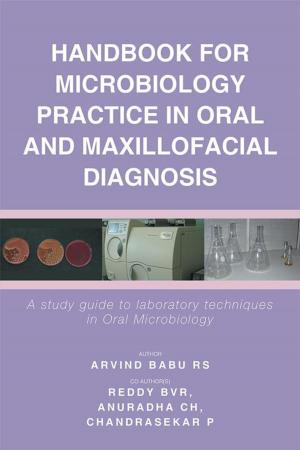"Understanding the Role of the Human Microbiota in the Development and Maintenance of Disease States: An overview."
Nonfiction, Health & Well Being, Medical, Medical Science, Biotechnology, Microbiology| Author: | hakimuddin saboowala | ISBN: | 1230002061108 |
| Publisher: | Dr. Hakim. K. Saboowala | Publication: | December 23, 2017 |
| Imprint: | Language: | English |
| Author: | hakimuddin saboowala |
| ISBN: | 1230002061108 |
| Publisher: | Dr. Hakim. K. Saboowala |
| Publication: | December 23, 2017 |
| Imprint: | |
| Language: | English |
Research has determined that we share our life with around 100 trillion organisms which comprise something called our microbiome.
For every one of our cells, there are 10 microbial cells living on or inside our body, helping us to perform life-sustaining functions that we couldn’t perform without their help.
The microbiome can almost be looked at as an additional organ beyond what most have learned and can account for between 1-3% of total body mass.
The primary location of the microbiome is in the gut, but as researchers have demonstrated, its existence is far broader than you would think.
Humans have measurable microbiota on essentially every surface and orifice of the body.
An imbalance in the microbial community may cause pathological conditions of the digestive system such as obesity, cancer and inflammatory bowel disease; of the skin such as atopic dermatitis, psoriasis and acne and of the cardiovascular system such as atherosclerosis and also has been associated with neurodevelopment- al disorders such as autism and multiple sclerosis.
While the microbiome has a strong impact on the development of the host immune system, it is suspected that it can also be the cause of certain autoimmune diseases, including diabetes or rheumatoid arthritis.
A better characterization of the interactions may allow for a deeper understanding of human disease states and help to elucidate a possible association between the composition of the microbiome and certain pathologies.
An attempt has been made in this booklet to give some initial insight on the studies of the microbiome and its connection with human health by including the following interesting topics in this booklet:
Understanding Gut Microbiota
What Exactly Is a Microbiome?
How does it benefit us?
Where does our microbiome come from?
Why is the microbiome important?
Microbiome Basics:
The Importance of an imbalanced Microbiome.
…………Dr.H.K.Saboowala
Research has determined that we share our life with around 100 trillion organisms which comprise something called our microbiome.
For every one of our cells, there are 10 microbial cells living on or inside our body, helping us to perform life-sustaining functions that we couldn’t perform without their help.
The microbiome can almost be looked at as an additional organ beyond what most have learned and can account for between 1-3% of total body mass.
The primary location of the microbiome is in the gut, but as researchers have demonstrated, its existence is far broader than you would think.
Humans have measurable microbiota on essentially every surface and orifice of the body.
An imbalance in the microbial community may cause pathological conditions of the digestive system such as obesity, cancer and inflammatory bowel disease; of the skin such as atopic dermatitis, psoriasis and acne and of the cardiovascular system such as atherosclerosis and also has been associated with neurodevelopment- al disorders such as autism and multiple sclerosis.
While the microbiome has a strong impact on the development of the host immune system, it is suspected that it can also be the cause of certain autoimmune diseases, including diabetes or rheumatoid arthritis.
A better characterization of the interactions may allow for a deeper understanding of human disease states and help to elucidate a possible association between the composition of the microbiome and certain pathologies.
An attempt has been made in this booklet to give some initial insight on the studies of the microbiome and its connection with human health by including the following interesting topics in this booklet:
Understanding Gut Microbiota
What Exactly Is a Microbiome?
How does it benefit us?
Where does our microbiome come from?
Why is the microbiome important?
Microbiome Basics:
The Importance of an imbalanced Microbiome.
…………Dr.H.K.Saboowala















